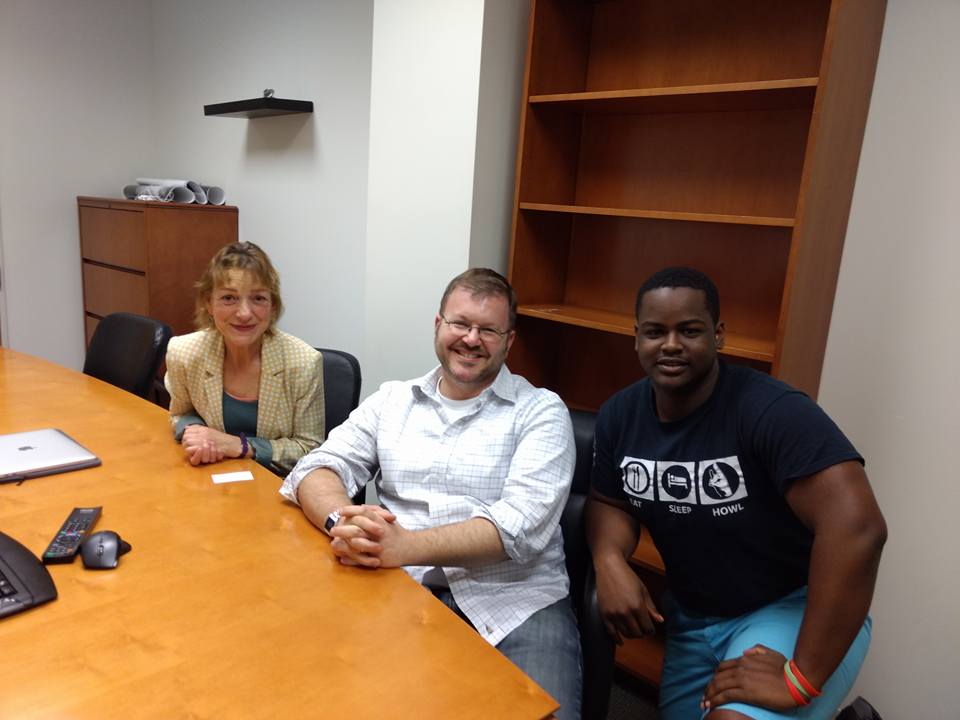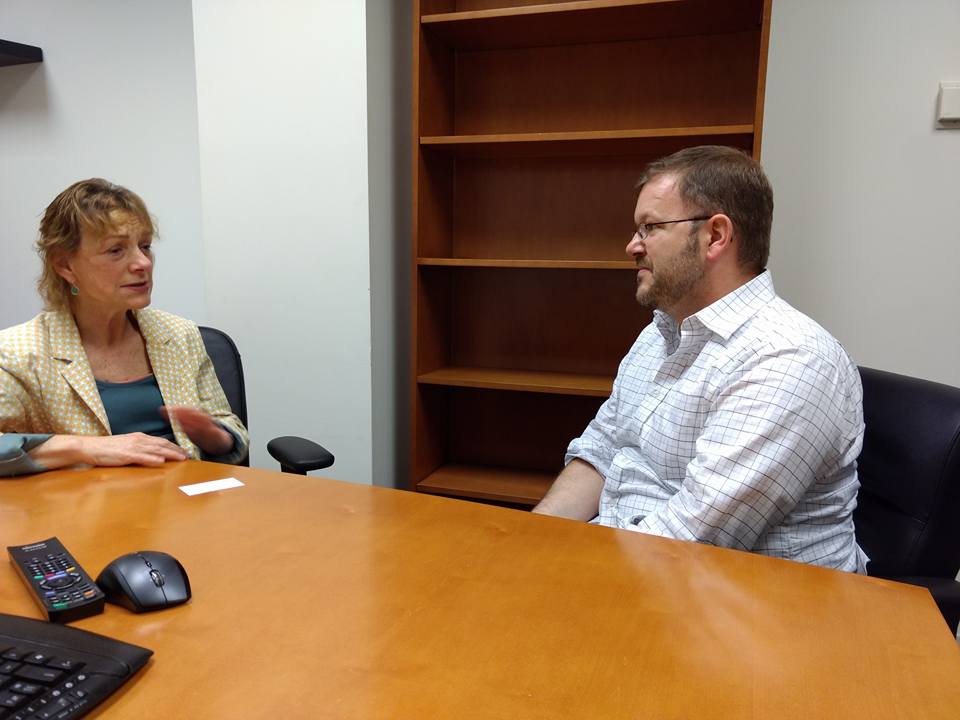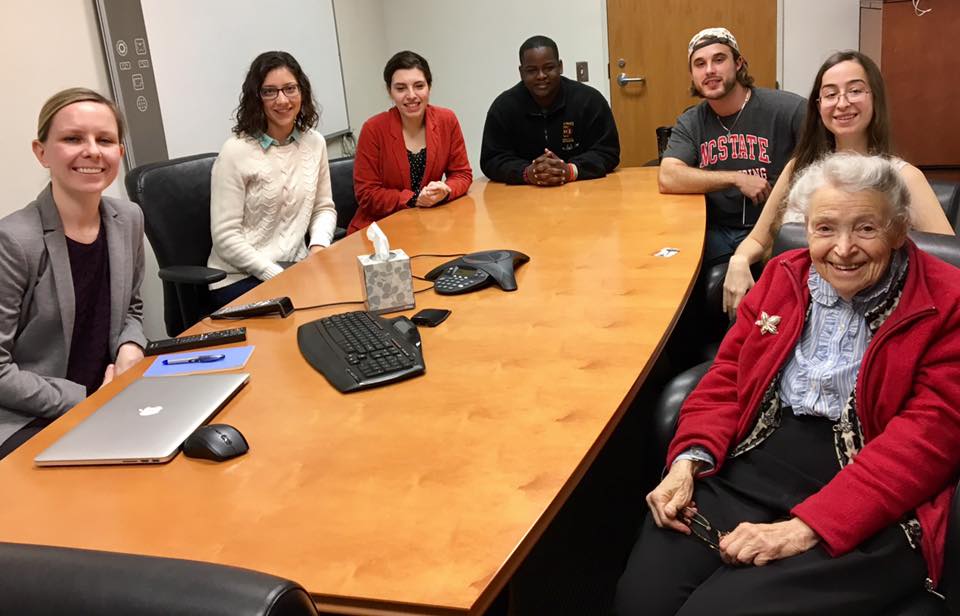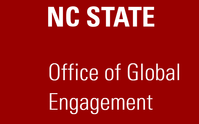|
Scibridge members meet with Dr. Nava Setter, a leader in research on functional ceramics, ferroelectrics, and piezoelectrics, to talk about Scibridge and its future goals. Dr. Setter is also well known for her passion for enabling science learning in rural high schools in Tanzania. We look to take advantage of this experience and use Dr. Setter's expertise, knowledge, and advice to reach our goals as an organization.
0 Comments
Today, Scibridge had the pleasure of hosting Dr. Stan Meiburg of the U.S. Environmental Protection Agency. As one of Scibridge's main goals is research in sustainable and renewable energy, Dr. Meiburg's presentation on the history and impact of the EPA was both timely, and inspiring. We also congratulate Dr. Meiburg as he accepts his new position as the Director of Graduate Sustainability at Wake Forest University. Last year, Scibridge received an East Africa Strategic Grant from the Office of International Affairs. This year, Scibridge receives a spotlight in the GlobalEyes Newsletter. The article describes how the responses from the African student participants have been "overwhelming" which exemplifies the "necessity and impact" of the program. Below is a quote from Dr. Veronica Augustyn about the organization.
"The SciBridge project is important because it is bridging not only the scientific knowledge gap, by developing hands-on experiment kits for undergraduate and high school students in East Africa, but also because it is teaching students how to participate on diverse and global teams to solve critical global challenges." - Dr. Veronica Augustyn, Scibridge Chair and U.S. Organizer Click here to read the full article On August 15, 2017 Scibridge became an official club at NC State University. As a result, Scibridge was granted the opportunity to apply for appropriations funding that is allocated to new student organizations. Today, Scibridge received the maximum amount of funding, $230, and will use the funds to further increase the membership of the organization. We thank the NC State Student Government for this funding opportunity.
December of last year, NC State students of Scibridge collaborated with the Shaw University students in an opportunity to perform a trial run on the experiment kits and gain feedback from students with diverse technical backgrounds in order to create a better lesson plan, and open the dialog for future collaborations. Scibridge is currently working on building an experimental kit based in thermoelectrics. Thermoelectric devices generate a voltage due to a temperature differential on opposite sides of the material. This goes hand-in-hands with Scibridge’s goal of making experimental kits based in Materials science, energy, and sustainability. This kit will make use of a Thermoelectric Peltier Plate.
The Shaw University students proved to be an excellent test case for the draft lesson plan and provided great insight. Alex Hsain, Scibridge experiments coordinator, expressed that the “Shaw University students were excited to learn and dive into experiments.” Alex also expressed how the “valuable feedback” the Shaw University students provided on “areas of the lesson plan that needed clarification [and] questions that needed adjustment,” would prove instrumental in improving on the TEG (thermoelectric generator) kit as well as future kits. Areas such as the length of the lesson plans as well as the clarity of the instructions will need to be reevaluated before sending the finished product across the globe. Scibridge hopes to pair up with interested Shaw University students in the future. When asked about the potential collaboration, Scibridge member Chris Boggs expressed great excitement. “Yes! Even if it is just for building a better lesson plan,” exclaimed Chris, “They could even be involved in webinars about the materials they have been learning!” The experimental kit and lesson plan is not complete yet, but Scibridge plans to ship the kits to some of our partner East African Universities in June 2017. As we continue to walk through the year, future collaborations with Shaw University students will be instrumental in the finished product of the TEG kit and future kits to come. Dear SciBridge Supporters,
As 2016 draws to an end, we welcome you to reflect with us on the progress and impact of the SciBridge project on achieving its mission of enabling renewable energy collaborations amongst university scientists and educators in the U.S. and Africa. This year was an exciting year for us in terms of establishing our U.S. home base at North Carolina State University and developing financial support for experiment kits for the next few years. We also shared the message of SciBridge around the U.S. in the hopes of developing new financial support and general interest in U.S.-Africa science collaborations. The following are particular highlights:
In the coming years, SciBridge will continue to act as a connection and collaboration platform for scientists in the U.S. and Africa. We firmly believe that there is a significant need for sustainable energy development, and that assembling teams of scientists from all regions of the world to work together will be a key component of solving this global challenge. Universities are ideally positioned to train students to work on culturally diverse and interdisciplinary teams and provide them the understanding and hands-on experience to realize – and invent – new, sustainable energy technologies. Lastly, we would like to thank you all for your time and enthusiasm for the project, whether it is via your role as a current or former volunteer, as an educator, a student who participated in our workshop, or a fan. We wish you all a happy and peaceful 2017. Please continue to follow our progress on our website, Facebook, or twitter. We welcome your feedback and new ideas! Sincerely, Veronica Augustyn Assistant Professor, NC State University SciBridge Chair & U.S. Organizer Materials Science & Engineering students & SciBridge ambassadors meeting and brainstorming with one of the most eminent scientists of our time, Millie Dresselhaus! Students discussed the future of Scibridge as well as their current individual research projects. We were honored to have her in our presence today.
Today, Scibridge had the honor of receiving $6000 in grant funding via the North Carolina State University Office of International Affairs. Scibridge will use the majority of this funding to finish and ship the TEG experiment kits.
The SciBridge project just received funding from National Science Foundation (NSF)!!!! The new grant will allow us to develop and build experiment kits for the next 5 years, and train students in the U.S. and Uganda to work together to solve the global energy challenge with sustainable technologies. We are excited about the opportunity through this grant to continue our mission.
Keep informed on our Facebook and Twitter page as well as the Scibridge website For the past two weeks (September 19-September 30), Scibridge at NC State University has had the pleasure of hosting our Africa Coordinator and Vice Chair, John Paul Eneku. It has been fun indeed as he will surely be missed at he makes his 18 hour flight back to Uganda. Until we meet again, John Paul! Best wishes on your travels back to Uganda! |
Archives
February 2023
|











 RSS Feed
RSS Feed
